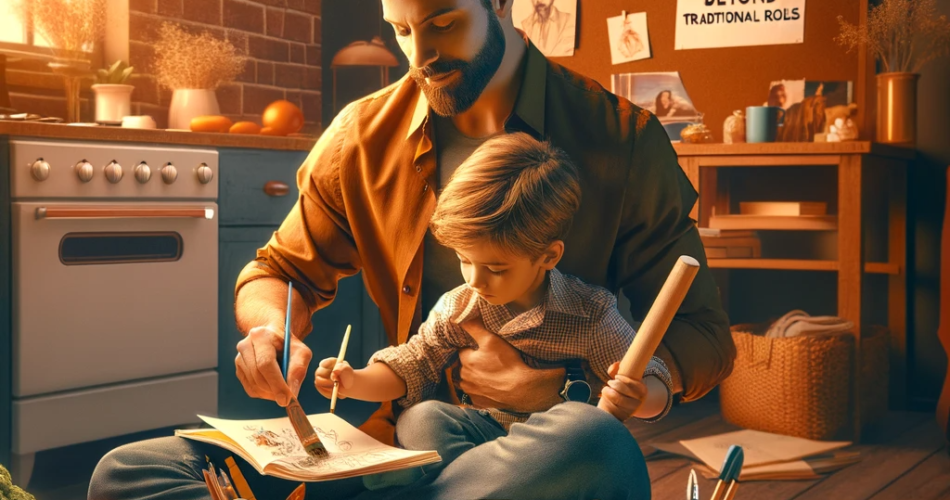Introduction: Rethinking Fatherhood in the Modern World
Gone are the days when fatherhood was confined to the traditional roles of provider and disciplinarian. Today’s dads are embracing a more active and emotionally involved parenting style. But what exactly happens to men during pregnancy, childbirth, and the early years of their baby’s life? Groundbreaking research by scientists like Professor Anna Machin and Professor Kai Bühling sheds light on the profound changes men undergo as they step into the role of a father.
The Evolution of Fatherhood
A Shift in Perspective
Historically, the role of fathers has been largely overlooked in research on parenting, often overshadowed by the focus on mothers. However, recent studies have begun to change this narrative, exploring the unique contributions and experiences of fathers. These studies reveal that fatherhood is not just a social role but involves significant biological and psychological transformations.
The Role of Hormones
One surprising finding is the hormonal changes that occur in men during their partner’s pregnancy and after birth. Hormones like prolactin, typically associated with lactation in women, also increase in men, impacting their testosterone levels. This hormonal shift prepares men to concentrate on their family, fostering a nurturing and protective role.
Personal Journeys of Fatherhood
Experiences of New Dads
The document shares the experiences of several new fathers, including Alexander Köthe from Berlin and Nuno Domingues from France. Their stories reflect the excitement, apprehensions, and transformative journey of fatherhood. These personal accounts highlight the emotional rollercoaster that accompanies the birth of a child, from overwhelming joy to the acute sense of responsibility and the deep, instinctive urge to protect and nurture.
Scientific Insights into Paternal Changes
Research on Fatherhood
Professor Anna Machin’s work at Oxford University delves into the neuroscience of fatherhood, investigating how men’s brains adapt to parenting. Her research indicates that fathers experience significant changes in brain regions associated with emotional processing and empathy. Similarly, Professor Kai Bühling’s studies suggest a decrease in testosterone levels in new fathers, which plays a crucial role in facilitating nurturing behavior.
The Impact of Active Fatherhood
Benefits of Engaged Parenting
Studies have shown that fathers who are more involved during pregnancy are likely to remain actively engaged after the birth. This involvement has a positive impact not only on children’s development but also on fathers’ mental health. Active fatherhood enriches the father-child relationship, contributing to a child’s cognitive and emotional development.
Challenges and Support for New Fathers
Despite the joys, fatherhood also brings challenges. The adjustment to a new family dynamic, sleep disturbances, and juggling work-life balance can be stressful. There’s an increasing recognition of the need for support systems for new fathers, including parental leave policies and resources for mental health.
Moving Forward: The Future of Fatherhood
The Cultural Shift in Parenting Roles
The evolving role of fathers signifies a cultural shift towards more egalitarian parenting. Societies are gradually recognizing the importance of fathers being equally involved in child-rearing, reflected in changing policies and societal attitudes.
Embracing the Full Spectrum of Fatherhood
As we move forward, it’s crucial to embrace and support the diverse ways in which men experience and engage in fatherhood. From prenatal bonding to sharing the joys and challenges of raising a child, the modern father’s role is multifaceted and deeply impactful.
Conclusion: Celebrating the Journey of Fatherhood
In conclusion, fatherhood today is more than just a societal role; it’s a deeply transformative experience that shapes men both biologically and psychologically. The journey of modern fatherhood, with its joys, challenges, and profound changes, deserves recognition and support. As we continue to explore and understand the complexities of this role, we pave the way for a more inclusive and empathetic society, where the contributions of both mothers and fathers are valued equally in the realm of parenting.

